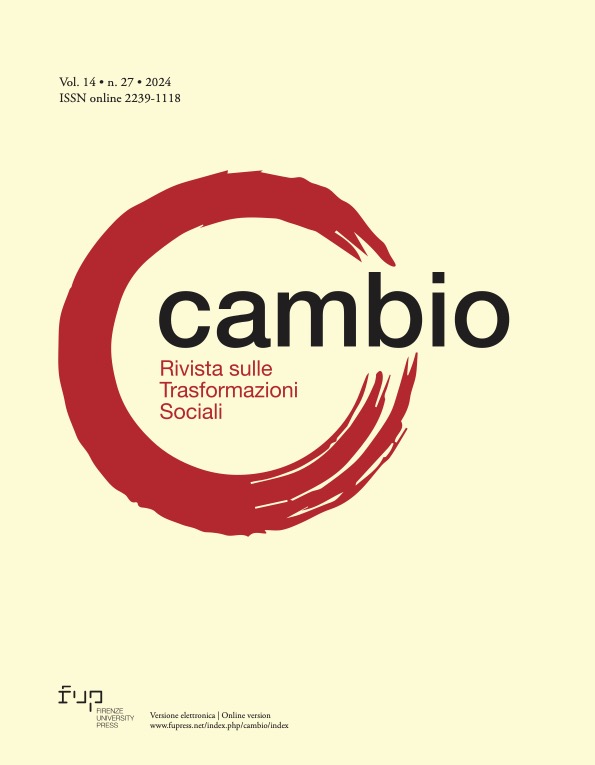Progettare il lavoro ibrido: lo spazio come strumento organizzativo nella fase post-emergenziale
Published 2024-11-21
Keywords
- remote working,
- hybrid work models,
- work organisation strategies,
- work spatiality,
- (re)imaging workplaces
How to Cite
Copyright (c) 2024 Giovanna Fullin, Valentina Pacetti, Sara Recchi

This work is licensed under a Creative Commons Attribution 4.0 International License.
Abstract
In the post-pandemic phase, hybrid work models are becoming prevalent in many countries and sectors, presenting challenges for work management and organisation. However, the characteristics of hybrid work modalities as well as the strategies adopted to manage them are still poorly explored in the literature. Since remote work alters the classical spatio-temporal boundaries of work, this paper investigates the effects of hybrid models on work spatiality and workplace use. The research explores the perspective of HRM in large companies based in Milan and adopting hybrid work models. Our findings underline the significant role of space in reimagining work organisation strategies and, at the same time, the presence of concurrent contradictory logics: to save costs by reducing spaces or to invest in attractive locations; to move towards the city center or to move away, opening new branches in the southern regions; to push workers back to the office by redesign modern and “activity-based” workplaces or to increase remote work in order to enlarge labour force pools. These emerging trends can undermine the features of workplaces as well as the territorial development models we are used to.

